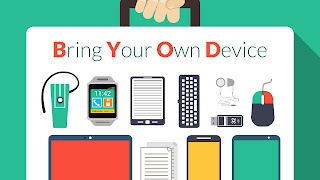Twitter Feed
How Cloud Brokerage Enables a Practical Path to Cloud IT
Join us on Wed, Apr 17, 2013 from 11:00 AM – 12:00 PM EDT to explore how to use cloud brokerage to move efficiently and securely to the cloud. More…
NJVC Cloudcuity Management Portal to Provide Secure Cloud Brokerage Services to NCOIC for NGA
CHANTILLY, Va., March 28, 2013 — NJVC®will lead efforts to provide secure cloud brokerage services to the Network Centric Operations Industry Consortiumusing its first-to-market Cloudcuity™ Management Portal during a series…
CloudCheckr : Amazon Complexity Challenges Many Users
A recently released infographic from CloudCheckr (https://cloudcheckr.com/) sheds quite a bit of light on the importance of expert advice when an enterprise decides to deploy to the cloud. When…
NJVC Announces Winner of Cloudcuity AppDeployer Contest Pilot at George Mason University
CHANTILLY, Va., Feb. 25, 2013—NJVC, an information technology solutions provider headquartered in northern Virginia, is pleased to announce the winner of the George Mason University (GMU) Student PaaS Developer Contest.…
Bahrain International eGovernment Forum 2013
I am honored to announce that I will be a speaker at the Bahrain International eGovernment Forum, April 8-10, 2013, being held at the Ritz-Carlton Bahrain Hotel and Spa, in…
Why the cloud will shake markets.
“Recently, I predicted that in 2013, cloud computing will provide the biggest disruption information technology has experienced in 25 years. These impacts extend to the $128 billion data center industry,…
Top 10 Transformational Impacts of the Cloud in 2013
CHANTILLY, Va., Dec. 20, 2012 — NJVC®, an information technology solutions provider headquartered in northern Virginia and supplier of Cloudcuity™ AppDeployer, and Virtual Global, a provider of cloud-enabled enterprise IT…
GovTech Innovator: Kevin Jackson
Today I am honored to be named a GovTech Innovator by Government Technology. My personal thanks goes out to Hilton Collins for letting me Hangout with him on Google+. Govtech.com…
How Will Technology Impact Your Business in 2020?
by Dennis Brouwer (Repost from ThinkGig. Thanks for letting me contribute to your ebook!! – Kevin Jackson ) Human-like technology. The potential downfall of the data center. Hyper-personalization of…
The Government Cloud on KCUR-FM Central Standard with Jabulani Leffall
A big THANK YOU goes out today to KCUR-FM Central Standard host Jabulani Leffall, producer Matthew Long-Middleton,and associate producer Danie Alexander for having me as a guest on this morning’s show!…
- Increased employee mobility (63%), satisfaction (56%) and productivity (55%) dominate as the top drivers of BYOD. These employee related drivers are considered more important than reduced costs (47%).
- Security (39%) and employee privacy (12%) are the biggest inhibitors of BYOD adoption.
- 20% of surveyed organizations have suffered a mobile security breach, primarily driven by malware and malicious WiFi.
- Security threats to BYOD impose heavy burdens on organizations’ IT resources (35%) and help desk workloads (27%).
- Despite increasing mobile security threats, data breaches and new regulations, only 30% of organizations are increasing security budgets for BYOD in the next 12 months and 37% have no plans to change their security budgets.
- 72% – Data leakage/loss
- 56% – Unauthorized access to company data and systems
- 54% – Downloading of unsafe apps or content
- 52% – Malware
- 50% – Lost or stolen devices
- 49% – Vulnerability exploitation
- 48% – Lack of control on endpoint security
- 39% – Infrequent software updates
- 38% – Compliance
1. Create your policy before procuring technology: To effectively use mobile device management (MDM) technology for employee owned devices Policy must precede technology. Also note that these policies will have broad corporate-wide implications for IT, HR, legal, and security.
- Mobile device management
- Application security assessments
- Application testing services
- Application source code security assessments; and
- Embedded device security.
This post was brought to you by IBM Global Technology Services. For more content like this, visit ITBizAdvisor.com.
( Thank you. If you enjoyed this article, get free updates by email or RSS – © Copyright Kevin L. Jackson 2017)
Cloud Computing
- CPUcoin Expands CPU/GPU Power Sharing with Cudo Ventures Enterprise Network Partnership
- CPUcoin Expands CPU/GPU Power Sharing with Cudo Ventures Enterprise Network Partnership
- Route1 Announces Q2 2019 Financial Results
- CPUcoin Expands CPU/GPU Power Sharing with Cudo Ventures Enterprise Network Partnership
- ChannelAdvisor to Present at the D.A. Davidson 18th Annual Technology Conference
Cybersecurity
- Route1 Announces Q2 2019 Financial Results
- FIRST US BANCSHARES, INC. DECLARES CASH DIVIDEND
- Business Continuity Management Planning Solution Market is Expected to Grow ~ US$ 1.6 Bn by the end of 2029 - PMR
- Atos delivers Quantum-Learning-as-a-Service to Xofia to enable artificial intelligence solutions
- New Ares IoT Botnet discovered on Android OS based Set-Top Boxes


